A Gentle Guide to Dianthus Varieties: The Beauty of Strength in Fragility
The wind is soft today, and as I sit in my garden, the pale petals of the Dianthus catch my eye, fluttering like whispers of a forgotten time. The flowers don’t speak in loud proclamations, but in quiet moments of tenderness that remind me of the delicate balance between strength and fragility—a theme I have come to cherish in my own life, as well as in the garden. These flowers, often known as Pinks, are more than just a pretty face in a garden—they are gentle warriors, resilient in their fragility, teaching us something profound about embracing softness while holding onto our power.
In this guide, we’ll take a journey through some of the most beloved Dianthus varieties, each carrying with it a quiet story of resilience, transformation, and growth. Much like us, these flowers are ever-evolving, grounded yet wild, delicate yet fiercely beautiful. So, let’s dive into their world and see what they can teach us.
1. Sweet William (Dianthus barbatus): The Dreamer’s Companion
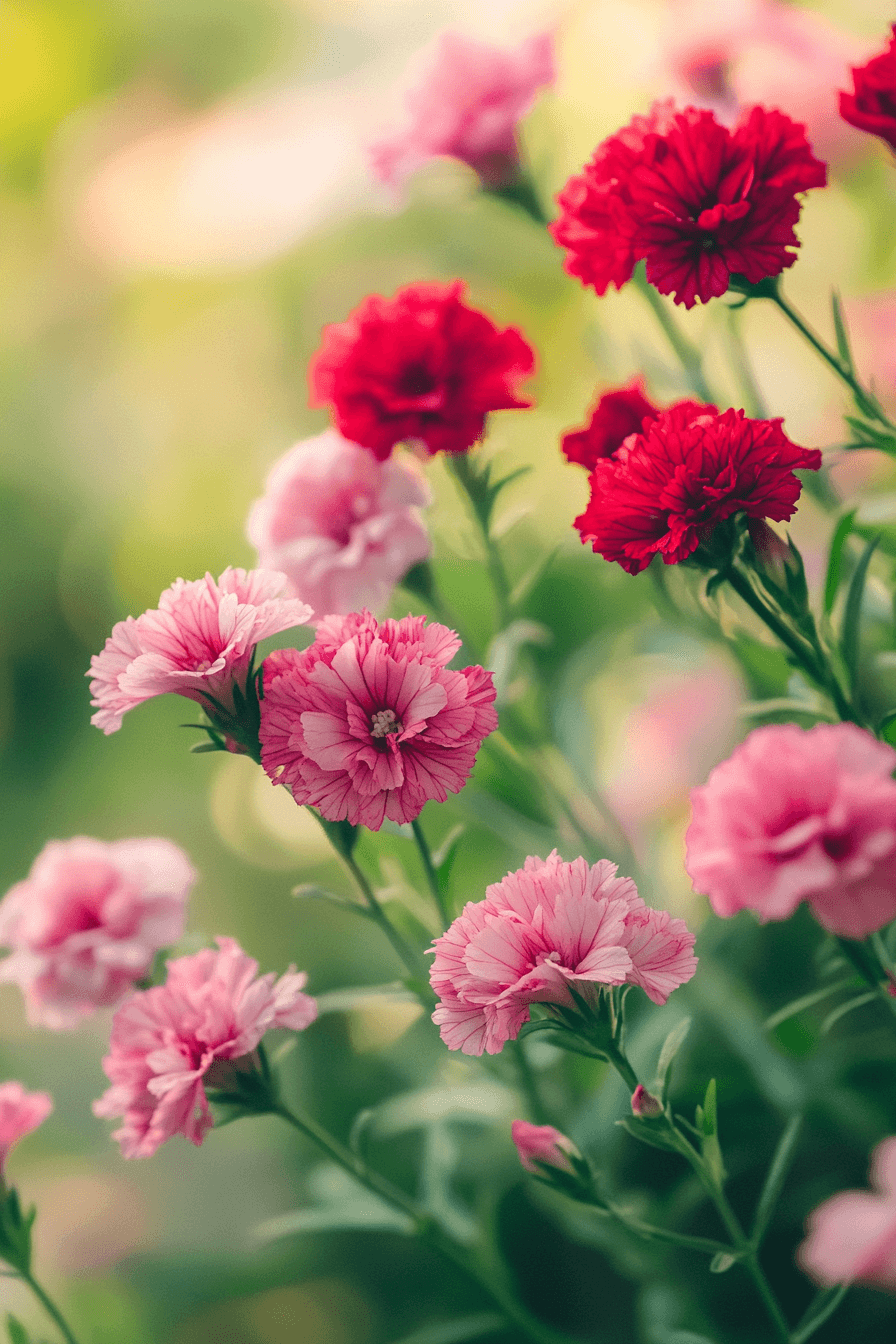
I have a soft spot for Sweet William, perhaps because of its humble charm and its ability to bloom even in the most uncertain of conditions. Like many women in my life—strong and determined yet tender and full of grace—Sweet William isn’t afraid to let its colors shine, from deep crimson to soft pinks and whites. The blooms remind me of the times when, despite feeling small, I’ve found strength in softness, in simply allowing myself to exist without apology.
These flowers stand tall and proud, much like we should. They are perfect for those who believe in the quiet strength of resilience. Whether planted in borders or containers, they require a little patience to truly thrive, but like any strong woman, they will reward you with beauty and joy in return.
Care Tips:
Sweet William thrives in full sunlight and prefers well-drained soil. Water regularly, but avoid waterlogging. Pinch back spent flowers to encourage more blooms.
2. China Pink (Dianthus chinensis): The Feminine Rebel
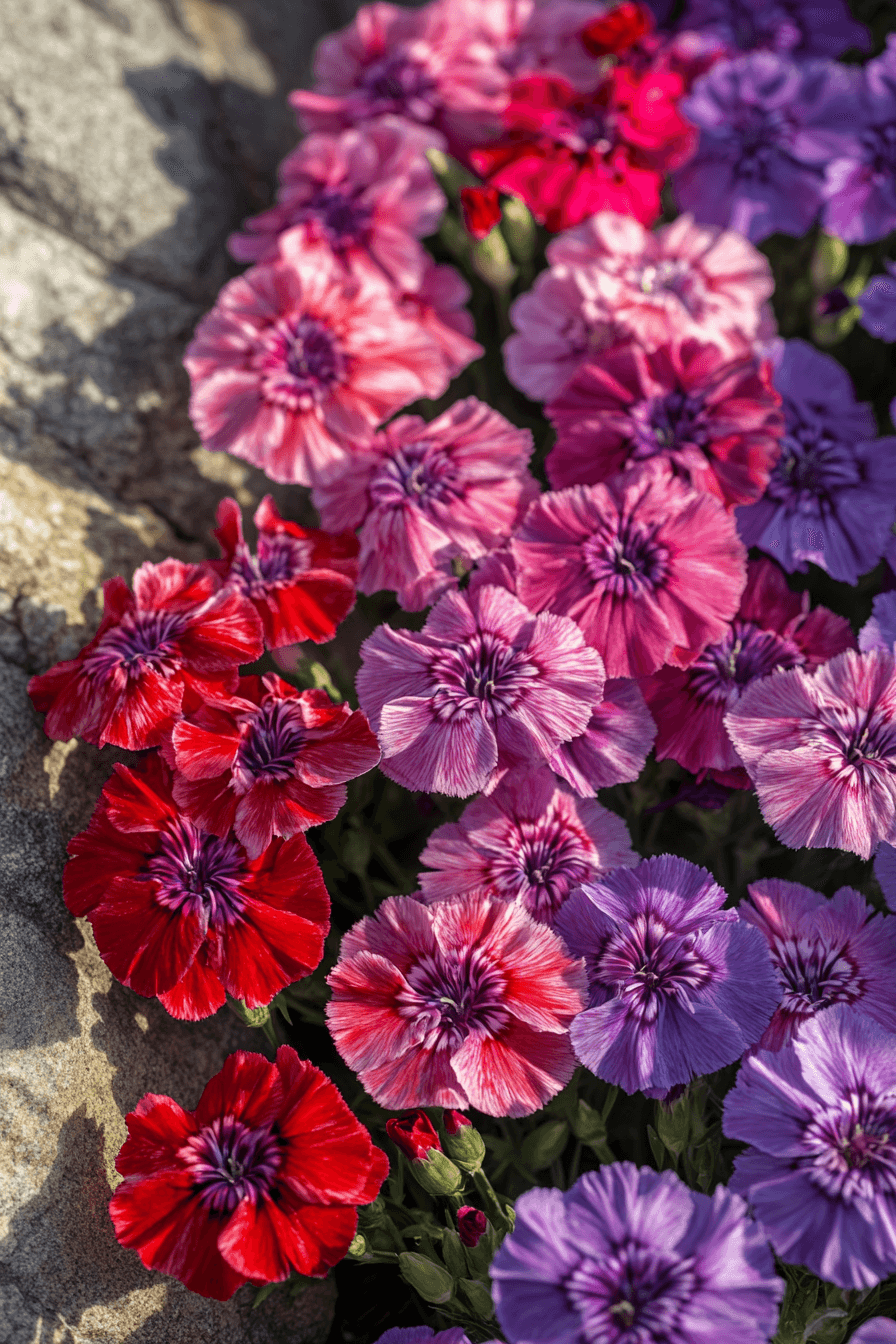
If I could describe China Pink in one word, it would be rebel. This variety speaks to me in bold hues—vibrant reds, purples, and pinks that feel like defiance wrapped in silk. These flowers, though gentle in their appearance, carry a fierce energy that reminds me of women who are unapologetically themselves, carving paths in the world, not for recognition, but because they must.
China Pink is a symbol of defiance and grace, a reminder that being soft doesn’t mean being small. Their adaptability and enduring blooms through changing seasons remind me of how we, as women, adapt and grow through life’s challenges, blooming where we are planted, regardless of the circumstances.
Care Tips:
Plant China Pink in a sunny spot with well-drained soil. They enjoy moderate watering and should be deadheaded regularly to keep the blooms coming.
3. Pinks (Dianthus plumarius): The Quiet Resilience
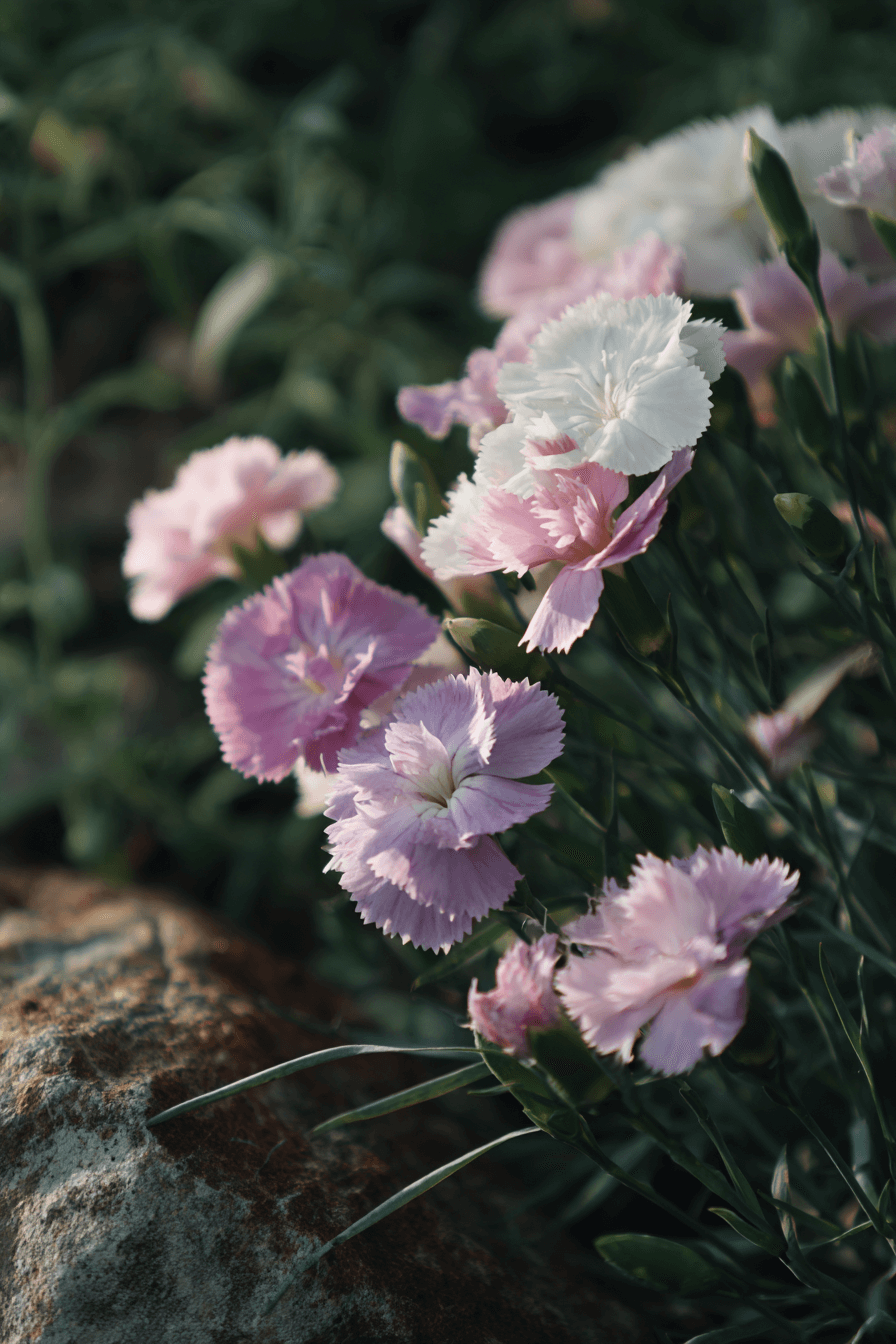
There’s something almost poetic about the Pinks variety, a flower that refuses to shout for attention but instead speaks in a whisper that lingers long after the conversation has ended. The soft, frilled edges of these flowers remind me of how we, as women, often go unnoticed—our power simmering quietly beneath the surface. And yet, the way these flowers endure in harsh conditions, thriving in dry, rocky soils, teaches us that resilience is often born from the most unlikely places.
In my garden, Pinks are the silent warriors, showing that beauty and strength don’t always come from loud, dramatic gestures, but in the subtle persistence of quiet determination.
Care Tips:
This variety prefers well-drained, slightly alkaline soil. Pinks love the sun and need moderate watering. Trim them back after the first bloom to promote a second flowering.
4. Carnation (Dianthus caryophyllus): The Eternal Classic
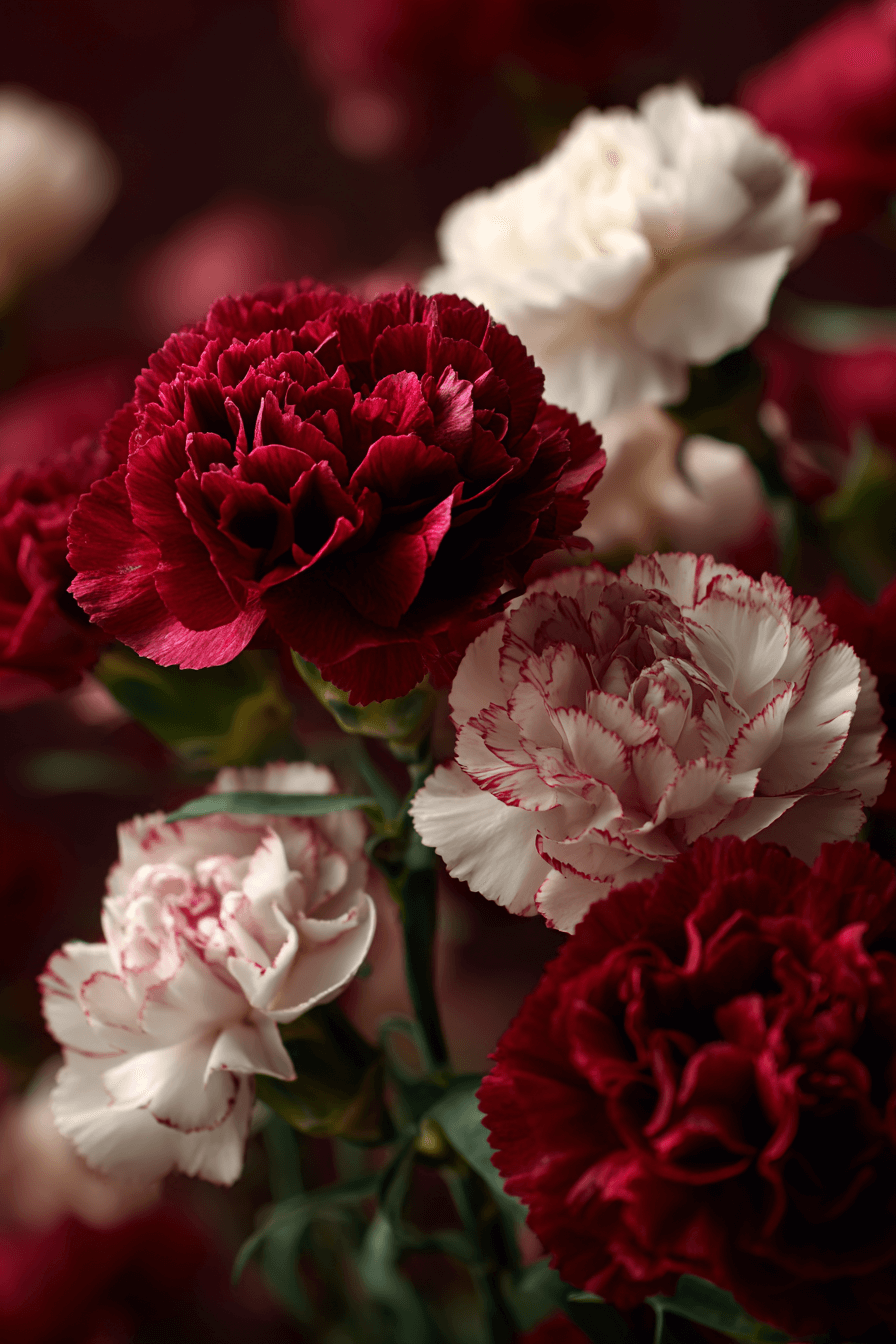
Ah, Carnation, the classic. Sometimes, I feel like Carnation represents the timeless essence of womanhood—elegant, refined, and deeply rooted in history. Known for their spicy fragrance and rich, full blooms, Carnations never seem to go out of style. They remind me of women who have stood the test of time, women who have cultivated their inner power while embracing their softness.
For me, growing Carnations is like learning to embrace both the light and dark within myself. The intense colors—ranging from fiery reds to calming whites—represent the spectrum of experiences that shape who we are. No matter where we are in life, there’s always a Carnation bloom waiting to remind us of our enduring strength and beauty.
Care Tips:
Carnations prefer full sun and well-drained soil. They need consistent watering, but be sure not to let them sit in wet soil. Pinch back flowers to encourage further blooms.
5. “Firewitch” Dianthus: The Flame Within
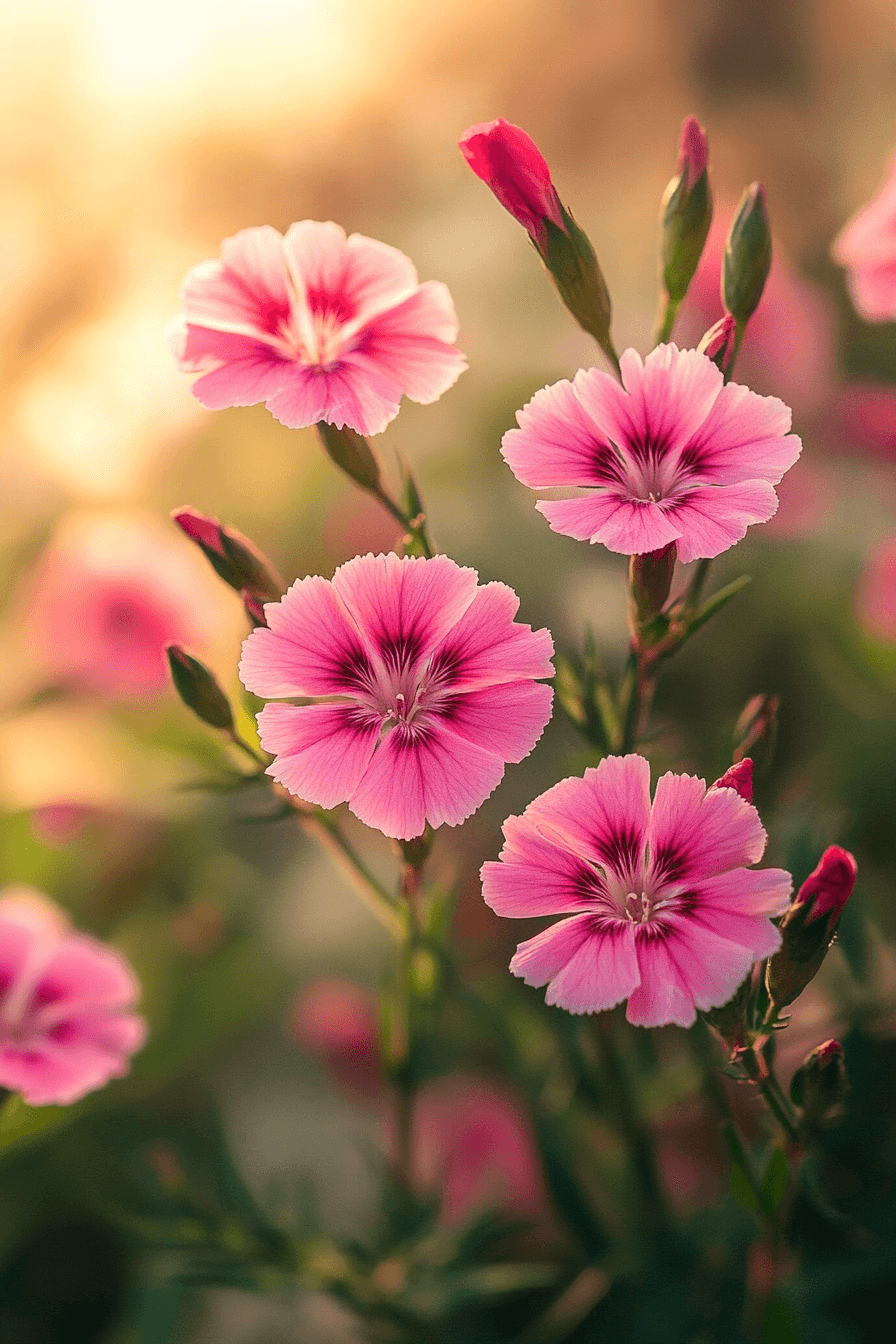
There are days when I feel like a Firewitch, a woman on fire with ambition, desire, and passion. The bright pink blooms of this variety evoke a fire that burns quietly but intensely, a reminder that we, too, can be fierce and vibrant while remaining grounded. Firewitch blooms are a fiery embrace of boldness and soft petals, much like how we can be both strong and tender, wild and graceful.
When planted in your garden, these flowers will act as a reminder that even in our most chaotic and challenging moments, we have the power to rise—like a flame in the dark.
Care Tips:
Plant Firewitch Dianthus in full sun and well-drained soil. This variety thrives in hot, dry conditions, so be sure to avoid overwatering. Deadhead to encourage more blooms.
6. “Everlast” Dianthus Series: Timeless Beauty
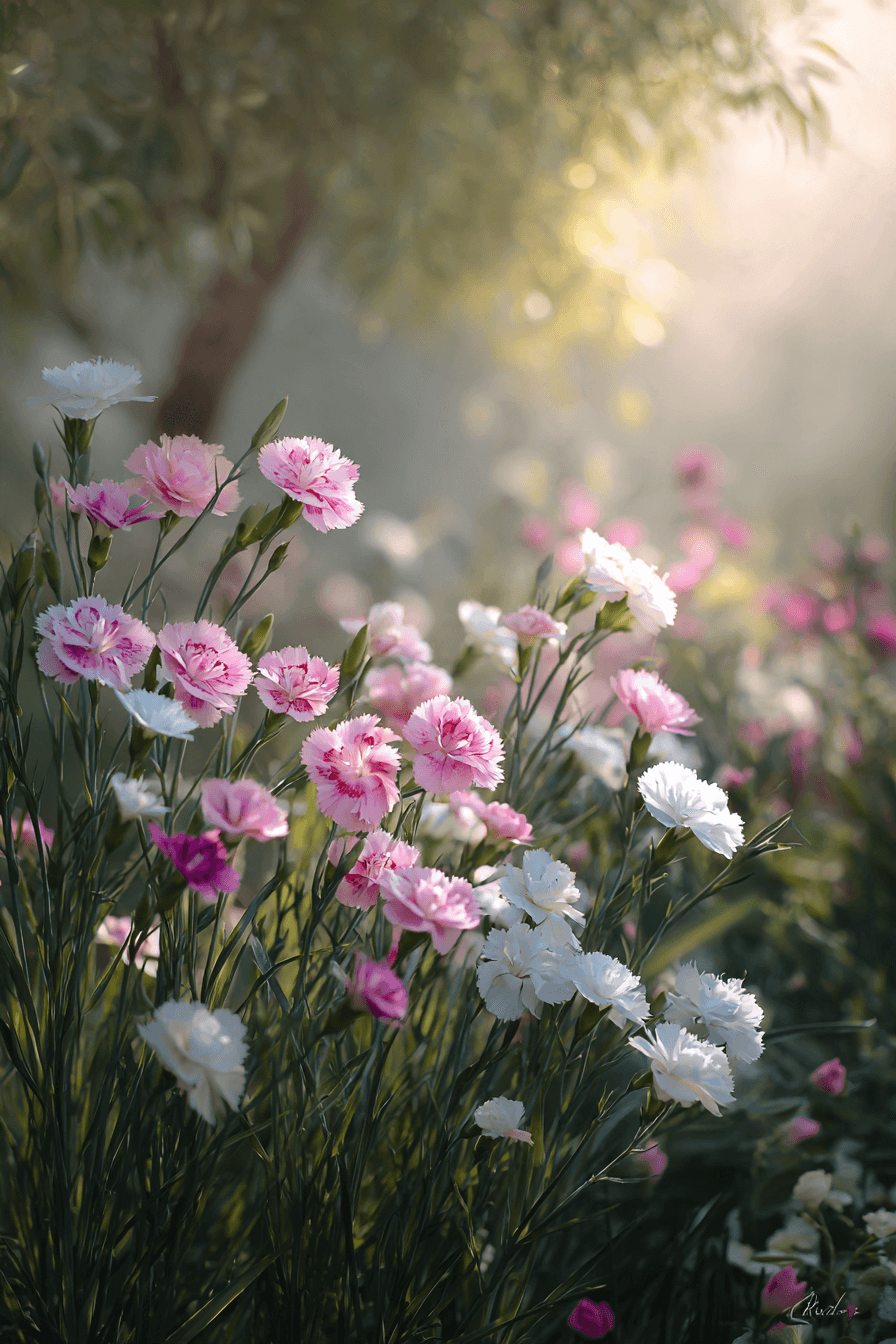
The “Everlast” series of Dianthus brings to mind the timeless nature of our growth as individuals—always evolving, but always remaining grounded in who we are. These blooms are like us, women in the midst of transformation: constantly becoming, constantly shedding the old, and embracing the new. The “Everlast” variety thrives under challenging conditions, proving that we, too, can withstand the test of time and life’s harshest seasons.
Like an eternal flame, Everlast flowers remind me that the quiet strength we cultivate today will bloom into something magnificent tomorrow.
Care Tips:
Everlast Dianthus prefers full sun and well-drained soil. Once established, it requires minimal care. Water them moderately, especially in the heat, but ensure the soil doesn’t stay soggy.
FAQ:
Q1: How do I care for Dianthus flowers?
A1: Dianthus flowers generally thrive in full sunlight and well-drained soil. Ensure moderate watering, but avoid over-watering to prevent root rot. Deadhead regularly to encourage new blooms.
Q2: Which Dianthus variety is the easiest to grow?
A2: China Pink and Pinks are often considered the easiest to grow due to their adaptability to various soil types and weather conditions.
Q3: Can Dianthus grow in containers?
A3: Yes! Most Dianthus varieties, like Sweet William and Firewitch, are perfect for containers. Just ensure they receive plenty of sunlight and are placed in a spot with good air circulation.
As we wrap up this gentle guide to Dianthus, I encourage you to reflect on the lessons these flowers teach us about strength, softness, and growth. Whether you plant them as a reminder of your own resilience, or simply appreciate their quiet grace, they invite you
🌸 Keep Wandering Through the Garden
- A Gentle Guide to Lavender Varieties: Perfect Choices for Balcony, Aromatherapy & Garden Bliss
- Five Tender Sunflowers for Small Gardens & Big Feelings
- A Gentle Guide to 8 Classic Rose Varieties & Care Tips for Slow Living Gardeners
- A Gentle Guide to Cosmos: Three Varieties for Joyful, Wild Gardens
- Gentle Blossoms: A Zinnia Guide for Your Soulful Garden
- A Gentle Guide to Marigold Varieties
- A Gentle Guide to Petunia Varieties
- A Gentle Guide to Pansy Varieties: Faces of Resilience
- A Gentle Guide to Viola Varieties
- A Gentle Guide to Tulip Varieties
- A Gentle Guide to Lily Varieties
- A Gentle Guide to Chrysanthemum Varieties
- A Gentle Guide to Calendula Varieties
- A Gentle Guide to Nasturtium Varieties
- A Gentle Guide to Cornflower Varieties
👉 Explore more at jojolen.shop
- Pinterest: @GrowandGathertogether | Instagram: @jojolen6666
- Images © jojolen.shop — credit if shared. No commercial use without permission.
